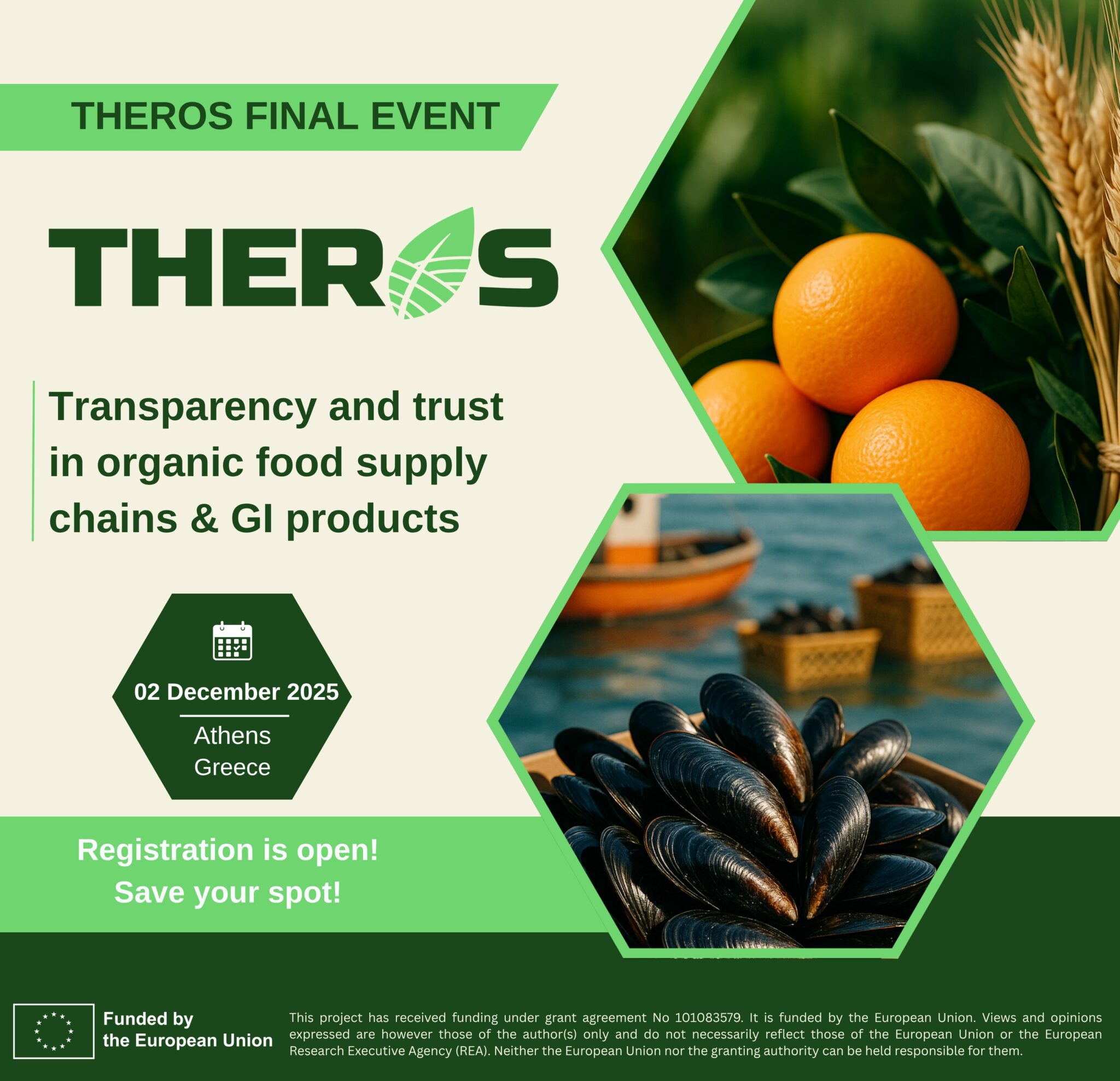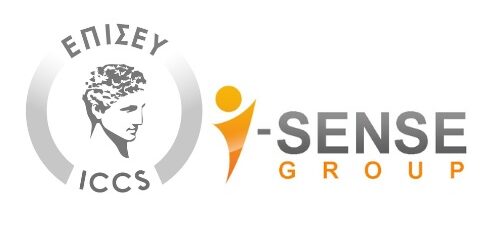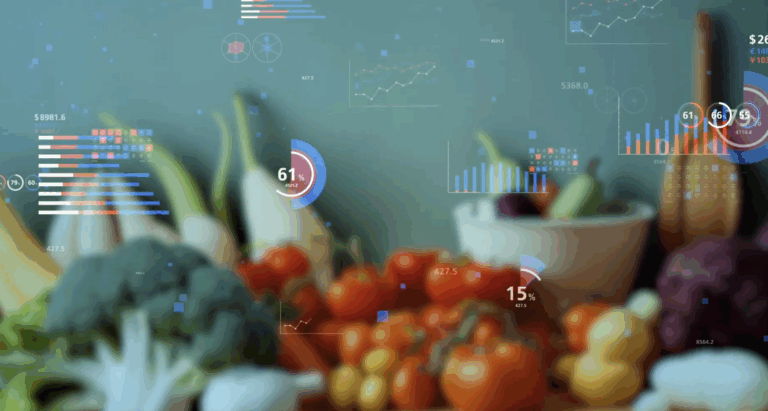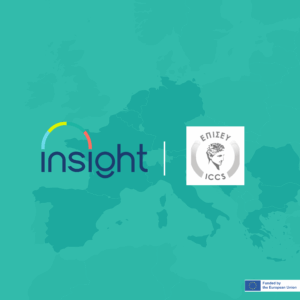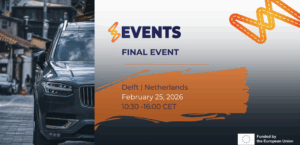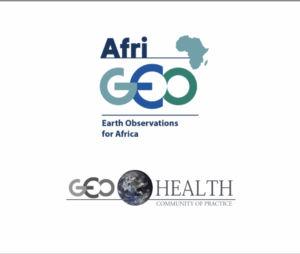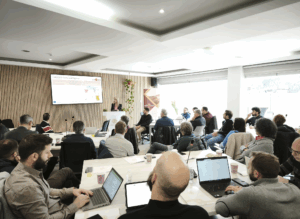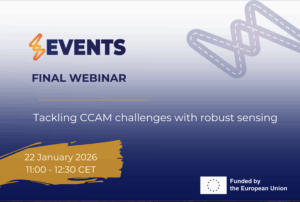How much do we truly know about the organic products we buy? How can we be certain that an olive oil is genuinely extra virgin, that an apple was grown without chemicals, or that a PDO product retains the authenticity of its place of origin? And ultimately, how much trust can we place in a supply chain that begins in a field and ends on our plate?
The European project THEROS, coordinated by the I-SENSE Group of ICCS answers these questions by creating a digital identity for each product—an identity that is scientifically validated, tamper-proof and visible across every link of the chain. At the heart of the project lies a series of pioneering technologies designed to function as a unified transparency ecosystem, turning the path “from farm to fork” into a story that can finally be proven.
An invisible mechanism tracking the journey of products
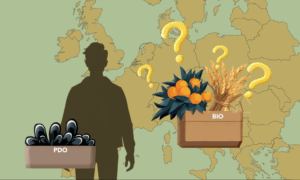 From the moment a fruit is harvested or a crop is collected from the field until it reaches our table, it passes through a chain that often remains unseen—a route full of stages, movements, decisions and critical information that determine the product’s quality, authenticity and sustainability. Every link in this chain matters: from farming practices and soil treatment to storage conditions, location and transportation. Yet until now, much of this story remained hidden or difficult to verify.
From the moment a fruit is harvested or a crop is collected from the field until it reaches our table, it passes through a chain that often remains unseen—a route full of stages, movements, decisions and critical information that determine the product’s quality, authenticity and sustainability. Every link in this chain matters: from farming practices and soil treatment to storage conditions, location and transportation. Yet until now, much of this story remained hidden or difficult to verify.
The THEROS project developed a suite of digital tools that activate an invisible mechanism of monitoring, control and authenticity verification. How?
“First, a small but powerful photonic NIR sensor, almost like a magic flashlight, is placed on fruits, flours and juices, revealing within seconds what lies inside—the composition, the quality, their authenticity. Using a library of AI models, it analyses the data without damaging the sample, turning each measurement into a piece of the product’s ‘digital fingerprint’,” explains Dr Angelos Amditis, Scientific Coordinator of THEROS and R&D Director of ICCS.
“At the same time, Copernicus Sentinel-2 satellite images map the field. They track crops, vegetation health, organic farming practices—even small parcels of land that often escape larger remote-sensing systems. In other cases, the laboratory goes ‘on the move’, as a portable DNA toolbox with PCR/HRM enables on-site genetic analyses of products. For example, during the pilot in Galicia, Spain, mussels proved their origin not through paperwork, but through their own genetic code…” he continues.
One of the project’s key innovations is the aggregation of all this information—satellite images, IoT data, DNA measurements from MEMS sensors, manual inputs and more—inside the THEROS Harmonisation Platform.
“There, an intelligent Verification Engine translates them into a unified model based on GS1 standards—a global system used worldwide for product identification, labelling, traceability and information exchange, allowing businesses and supply chains to speak the same data language,” explains Dimitra Tsiakou, Project Manager and researcher at the I-SENSE Group of ICCS. This standard forms the structure upon which a digital product passport can be built—interoperable, globally recognisable and reliable, providing unique identifiers for each product, like a barcode.
The platform delivered by THEROS includes a wide range of tools ensuring that every product acquires its own digital life and passport. With Blockchain technology, nothing can be altered or deleted, and every critical event in the chain is recorded. The Green Accountability Tool automatically assesses indicators, risks and environmental performance. With a traffic-light system, it shows whether a product’s journey is green, yellow or red. IoT sensors and AgroNode devices continuously collect temperature, humidity and location data during transport. The THEROS Digital Marketplace enables the commercial valorisation of products with automatic issuance of digital transport certificates.
Together, they form a narrative enriched with data, land, light, routes, decisions and people—a narrative that follows the product’s life and becomes its identity.
Effectiveness in practice – What the pilots revealed
The THEROS toolkit was tested in four countries—Greece, Serbia, Spain and the Czech Republic—and the findings show that fraud and inconsistencies can no longer hide. “In Greece and Serbia, satellite analyses and MEMS sensors revealed discrepancies between declared and actual organic farming practices, identifying potential cases of mislabelling early on. In Spain, the portable DNA kit achieved over 95% accuracy in identifying PDO Galician mussels, with immediate tamper-proof recording on blockchain. In the Czech Republic, the combination of IoT, Marketplace and blockchain enabled full transparency during transport and automatic issuance of digital certificates,” notes Ms. Tsiakou.
A strong footprint of Greek expertise in THEROS
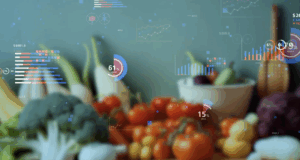 The THEROS consortium, composed of 17 European partners from 7 countries, worked closely to develop these technologies with the ultimate goal of introducing a new model of participatory transparency—one where small producers become co-owners of the verification data, contributing themselves to the creation of the digital identity of their products.
The THEROS consortium, composed of 17 European partners from 7 countries, worked closely to develop these technologies with the ultimate goal of introducing a new model of participatory transparency—one where small producers become co-owners of the verification data, contributing themselves to the creation of the digital identity of their products.
Greece’s participation in THEROS demonstrates that the country is not merely a producer of high-quality goods, but a creator of the technologies that will shape the future of agrifood in Europe. With ICCS/NTUA in the coordination role and the contribution of leading organisations such as the Aristotle University of Thessaloniki, CERTH, and certification bodies including the Institute of Organic Products Control of Western Greece, BIO Hellas and Bio Network West Hellas, Greece has shown it possesses the scientific maturity and technological ambition to lead in a sector that is a cornerstone of its economy: agricultural production.
“In an economy where the primary agricultural sector is both a pillar of identity and a driver of exports, leveraging these solutions—sensors, DNA analyses, remote-sensing data and of course the Digital Product Passport—is not just an opportunity but a necessary step toward a more transparent, competitive and fair market,” adds Dr Amditis. He also announces that ICCS is committed to strengthening collaboration in the field through European networks and international joint initiatives to ensure the uptake of THEROS results.
Open presentation – 2 December 2025, Amalia Hotel, Syntagma
To introduce the tools and outcomes of the project to the wider public and industry professionals, the THEROS consortium is organising an open presentation on 2 December 2025, at the Amalia Hotel, Syntagma Square.
The event is free of charge, but registration is required.
